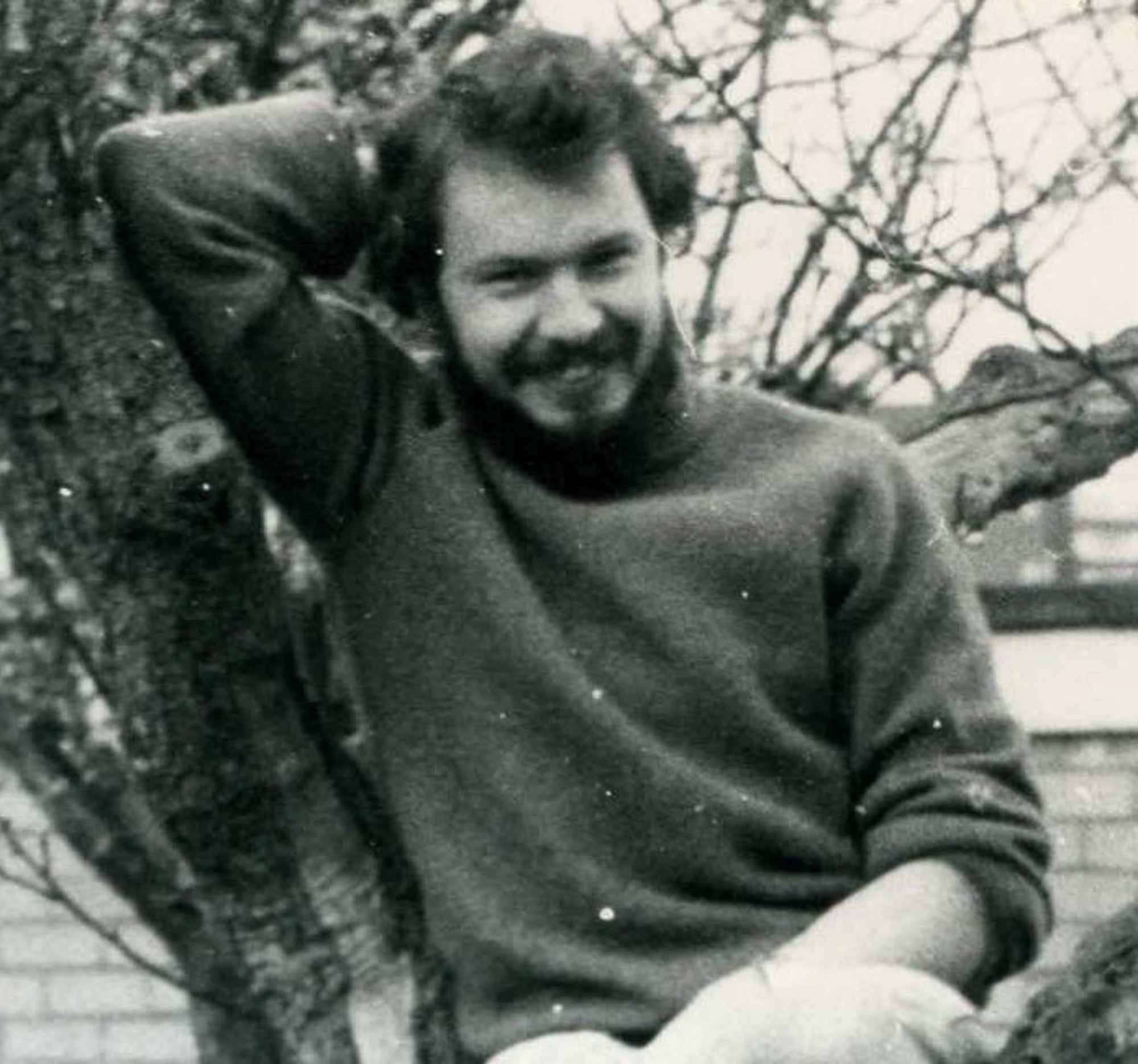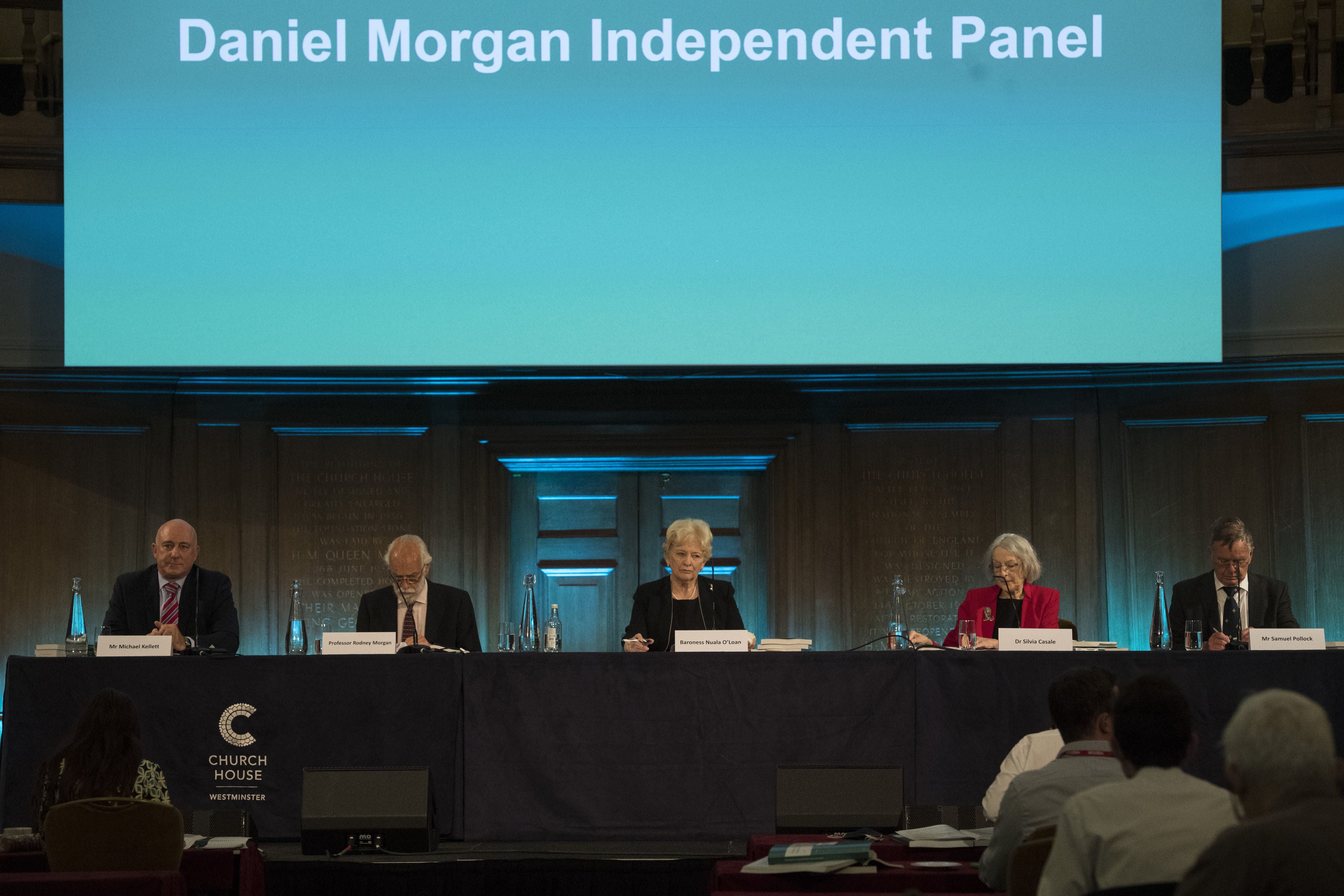Met Police chief Cressida Dick ‘may have breached professional standards’ over Daniel Morgan inquiry
Watchdog says no new avenues for criminal or disciplinary proceedings against any police officer over unsolved murder
Dame Cressida Dick may have “breached standards” during an inquiry into the unsolved murder of private detective Daniel Morgan, the police watchdog has said.
In a report accusing the Metropolitan Police of “institutional corruption”, an independent panel found the former commissioner had caused “major delays” to a panel investigating the 1987 killing.
In a separate report issued on Wednesday, the Independent Office for Police Conduct (IOPC) said: “We assessed that Dame Cressida may have breached police standards of professional behaviour by not providing full and exceptional disclosure to the Daniel Morgan Independent Panel (DMIP) sooner, although not to the extent that would justify disciplinary proceedings.
“We found that she acted with a genuine belief to protect the information but may have got the balance wrong and should have given greater priority to her duty to provide full and exceptional disclosure to the panel.”
Dame Cressida disputed the IOPC’s findings that she may have breached standards, saying she and her team “acted professionally, flexibly, expeditiously, diligently and with integrity in a challenging, unprecedented and complex task”.
“By December 2014, the panel had received 133,000 pages of material,” she added.
“I deeply regret that no one has been brought to justice for Daniel’s murder and regret everything the Met or any of its members have done which has added to the pain of Daniel’s family of losing Daniel in such terrible circumstances.”
Mr Morgan, a father-of-two, was brutally murdered with an axe in the car park of a south London pub on 10 March 1987.
There have been no successful prosecutions despite four major police investigations, an inquest, disciplinary action, complaints and other operations.
The IOPC concluded that there were no new avenues for investigation which could now result in either criminal or disciplinary proceedings.
Mr Morgan’s family said they were “disappointed but not surprised” by the outcome of the review.
“As Daniel’s family, we became aware of the police corruption and criminality at the heart of this matter within weeks of the murder: we said so then, and we had to say so repeatedly over the decades since the murder,” a statement added.
“We – and the public at large – have been failed over the decades by a culture of corruption and cover up in the Metropolitan Police.”
Findings published eight years after the independent panel was commissioned by Theresa May said corruption and the “irretrievable” loss of evidence prevented the culprits from being brought to justice.
The panel’s final report, published in June last year, said Dame Cressida’s refusal to allow “proper access” to the Holmes computer investigation system hampered the inquiry.
Baroness Nuala O’Loan, chair of the DMIP, said at the time: “It caused major delays to the panel’s work, which inevitably added to the panel’s costs, caused further unnecessary distress to the family of Mr Morgan.”

She said Scotland Yard’s leadership had not acknowledged or confronted its failings and showed a “lack of candour”, adding: “We believe the Metropolitan Police’s first objective was to protect itself.”
Boris Johnson said he had “full confidence” in Dame Cressida following the release of the report, which sparked fresh calls for her resignation.
She announced she was stepping down as Metropolitan Police commissioner in February, following the murder of Sarah Everard and a series of scandals over racism and misogyny by officers.
The panel said Dame Cressida, then an assistant commissioner, was the “senior officer in the Metropolitan Police with responsibility for supporting the Daniel Morgan panel’s work” when it was set up in 2013.
She drew up the terms of reference for the review alongside Crown Prosecution Service (CPS) officials and was involved in an initial row over “sensitive” material and access to the Holmes computer system.
Baroness O’Loan said the panel had “never received any reasonable explanation for the refusal over seven years by Cressida Dick and her successors to permit proper access to the Holmes accounts”.
She said the eventual £16m cost of the probe would have been lower if not for the time delays and “very significant resources that had to be spent challenging the continuing Metropolitan Police assertions about the difficulties of enabling the requested access to the Holmes system. This should not have happened.”
The force, which has since been put into special measures, accepted corruption was a “major factor” in the failure of the original 1987 investigation into Mr Morgan’s murder, but rejected the wider label of institutional corruption.

The IOPC said its powers were confined to actions by individual officers and that it “has no power to make any determination” on the issue.
It looked at 50 current and serving officers itself, and also asked the Metropolitan Police, London Mayor’s Office for Policing and Crime (Mopac) and Hampshire Constabulary to assess whether officers had committed misconduct or any offences.
All three bodies responded negatively but the IOPC said it disagreed with their assessments of Dame Cressida and other officers.
It also named the former Metropolitan Police assistant commissioner John Yates, who retired in 2011, saying he may have breached standards by failing to take action against the senior investigating officer in Mr Morgan’s murder.
Former Detective Chief Superintendent Dave Cook’s actions led to the exclusion of key witness evidence from the trial of three suspects, the IOPC said, but disciplinary proceedings cannot be brought after retirement.
Sal Naseem, IOPC regional director for London, said: “From the first to last investigation into Daniel Morgan’s murder there were failures to adequately challenge and investigate allegations that officers had acted corruptly.
“In coming to our decisions, we are acutely aware that not one single officer was ever successfully prosecuted or received significant disciplinary action as a result of corruption directly connected to the murder investigations.
“The circumstances of these matters must serve as a salient reminder to the Metropolitan Police and the police service more widely, of the importance of being constantly vigilant in challenging improper and corrupt behaviour swiftly, firmly and robustly.”
Assistant Commissioner Amanda Pearson said Scotland Yard had “transformed” its response to murder and corruption since Mr Morgan’s murder and was working to implement the panel’s recommendations.
“We deeply regret that we have been unable to bring those responsible for the murder of Daniel Morgan to justice. We profoundly apologise,” she added.
”Corrupt individuals, including police officers, played a significant part in undermining our ability to bring offenders to justice and we recognise the impact this has had on the public’s confidence in us.”


